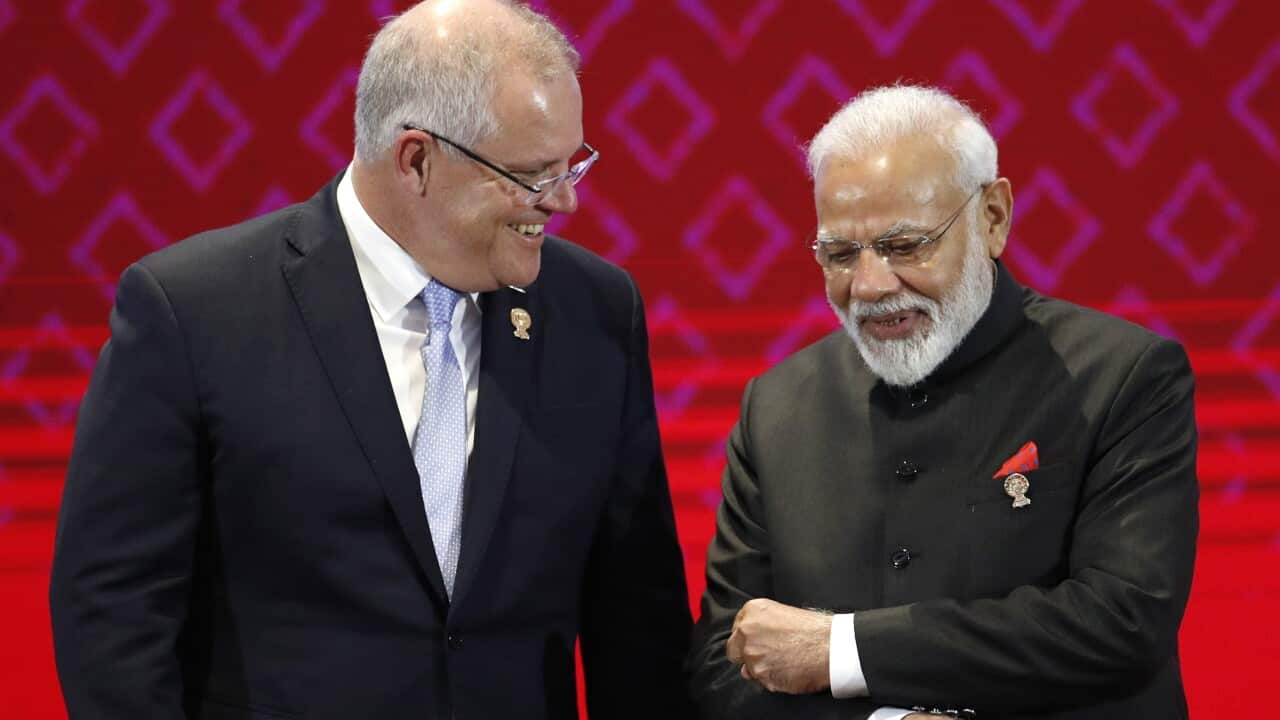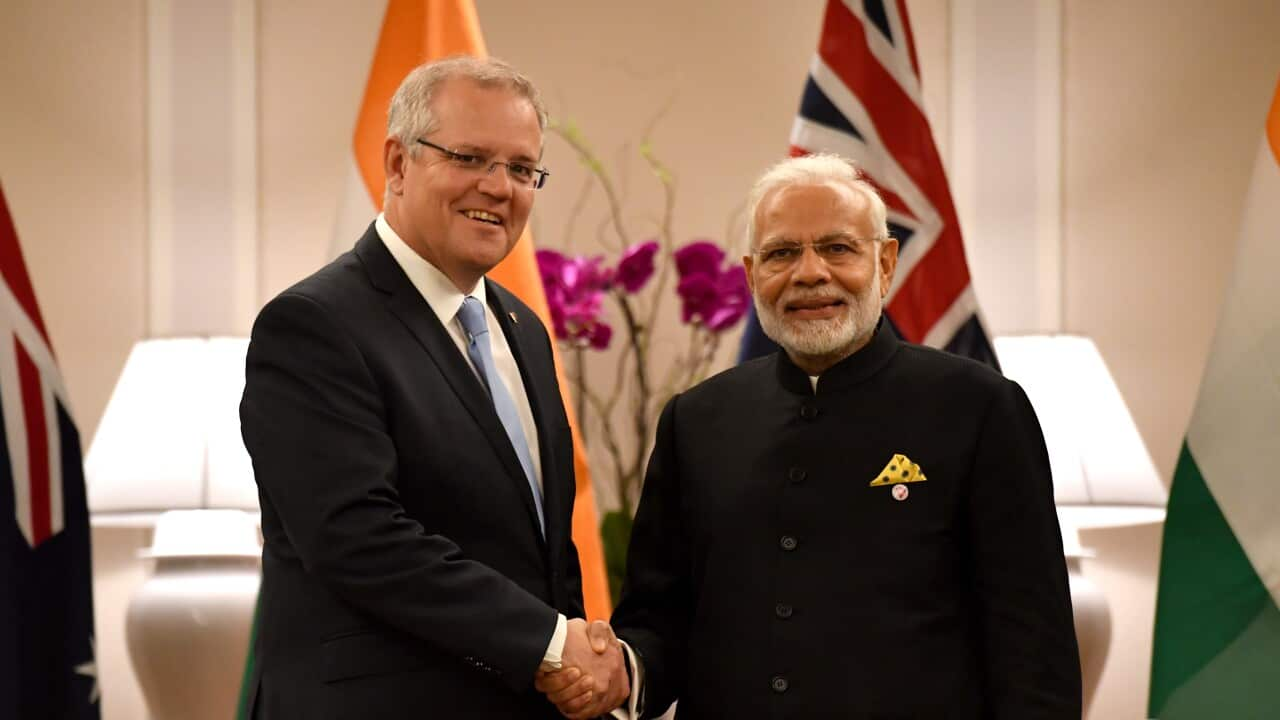A watershed trade deal with India will ensure Australian exporters have access to one of the world's largest economies, the prime minister says.
The deal, signed on Saturday, will see tariffs eliminated on more than 85 per cent of Australian goods exported to India, currently worth more than $12 billion a year.
Some 96 per cent of Indian goods entering Australia will also be made duty-free.
Prime Minister Scott Morrison said many countries have tried to do business with India, but only Australia has been able to secure an agreement.
"We are opening the biggest door to one of the biggest economies in the world," Mr Morrison told reporters on Saturday.
"It unlocks significant opportunities for Australia ... whether it's in berries or whether it's in wool. They're all real benefits."
Trade Minister Dan Tehan and his Indian counterpart Piyush Goyal signed off on the deal in a virtual ceremony on Saturday afternoon.
Indian Prime Minister Narendra Modi joined the call, crediting former prime minister Tony Abbott for accelerating the deal as Mr Morrison's special trade envoy to India.
"This is truly a watershed moment for our bilateral relations," he said.
Mr Morrison phoned in from Launceston in Tasmania, describing Mr Modi as a close friend and India as a like-minded democracy.

Indian Prime Minister Narendra Modi speaks during a virtual summit with Australian Prime Minister Scott Morrison, 21 March, 2022. Source: AAP / Press Information Bureau via AP
Tariffs on wine will also be reduced, while the resources sector will see tariffs on products like coal and metallic ores eliminated on entry.
Federal opposition leader Anthony Albanese said while the Labor party was not consulted on the agreement, it was welcome.
"It's a very sophisticated economy, they are world leaders in information technology ... manufacturing, pharmaceuticals," Mr Albanese told reporters on Saturday.
"I welcome a deepening of that relationship and it would be very much a focus of a government I lead."
Two-way trade between Australia and India is currently valued at more than $24 billion.
Negotiations on the Australian-India economic cooperation and trade agreement had been ongoing for more than a decade, with the first round of talks between the countries taking place in 2011.
The Australian Fair Trade and Investment Network (AFTINET) said the deal should be independently evaluated.
"As usual the text is only being released after signing and the devil will be in the detail," AFTINET Convenor Dr Patricia Ranald said.
"There will be no parliamentary scrutiny until after the election."
But Mr Tehan said the deal was a "significant win" for Australian exporters.
"We get access to the largest, fastest-growing economy in the world," he told the ABC on Saturday morning.
"By tying our two economies together, it does help provide an important ballast for the geo-strategic competition we are seeing in the Indo-Pacific.
"The more we can tie ourselves with India... the better for our long-term future and the better for stability in the Indo-Pacific."
The trade deal is also set to benefit the education and tourism sectors.
Both countries will recognise each other's professional qualifications, licensing and registration procedures.
Australian services suppliers across more than 30 sectors will be assured of receiving the best treatment by India in relation to any other trade deal India enters into.
Indian residents will also have new access to working holidays in Australia, having 1000 places set aside, with the federal government having two years to implement the measure.



